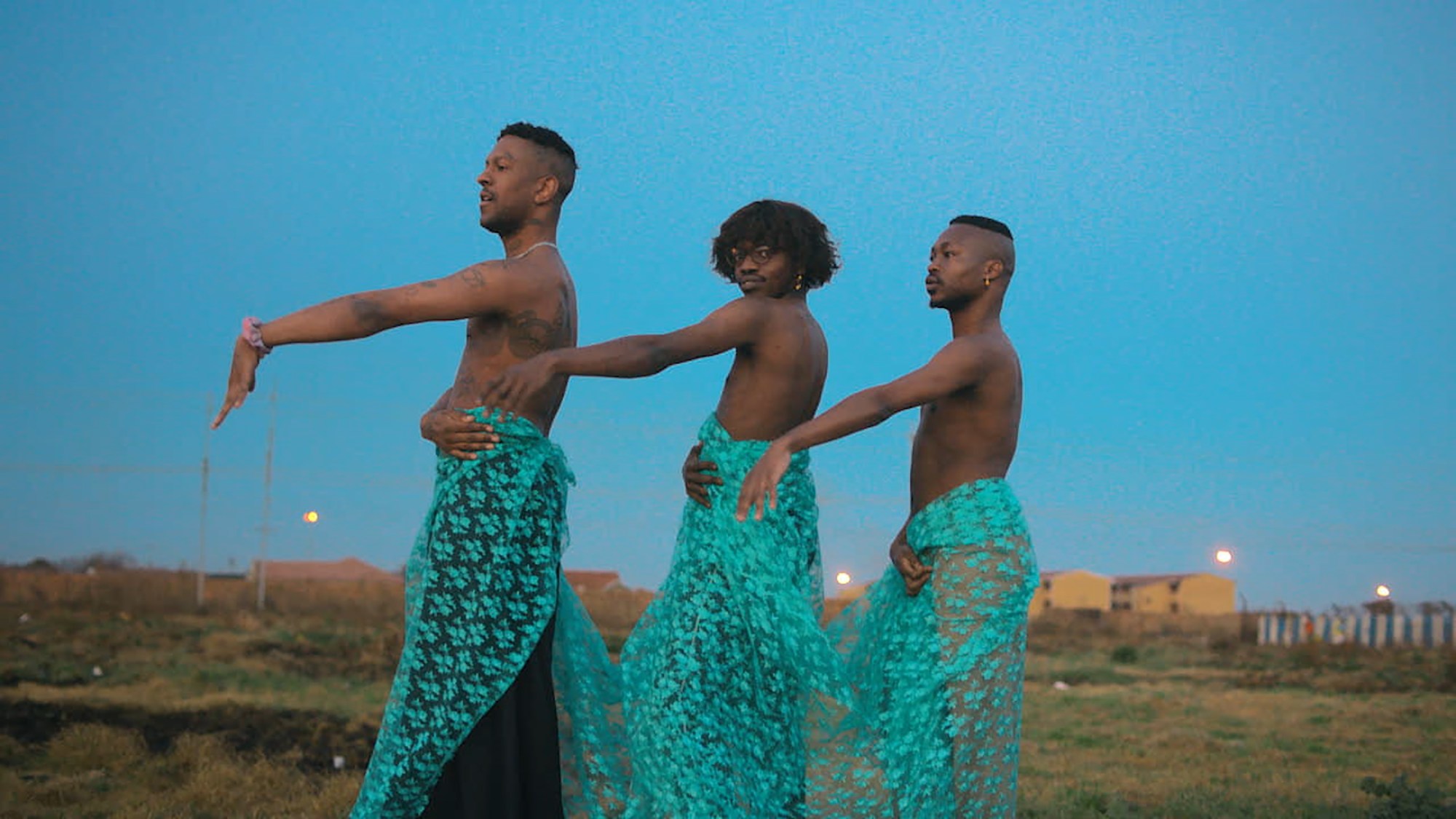i-D’s Out of this World is more than an exploration of South Africa’s queer scene; it’s an immersive appreciation of young queer artists in Jo’burg, the country’s largest city. Host, musician Mykki Blanco meets with a diverse group of performers and creators, explores the aesthetically and sexually free spaces they have carved out for themselves and discovers how their queerness parlays into their creativity and vice versa. Against a backdrop of South Africa’s serious inequalities of gender, race and wealth, Out of This World, directed by Matt Lambert, focuses on the Born Free Generation, who grew up free from apartheid’s violence. To find out more about this celebratory look at Jo’burg’s energetic and diverse queer creative scene, i-D sat down with Mykki Blanco to hear what he learned on what he’s calling a “life-changing” project.
Straight African men will hold hands in the street, just as a friendly thing. How does that rendition of traditional masculinity affect what homophobia is there?
Nkulsey and [performance art group] FAKA told me that in South African, particularly Zulu culture, being feminine isn’t equated with homosexuality. Heterosexual men there love style, fashion, being decked out to the nines and swagged out, but it’s not equivalent with being homosexual. And from what I heard, growing up there, people are so detached from the idea that anyone is gay that they’d see Bradley and Nklusey together and ask them “Are you twins?” or “Are you brothers?” rather than ever begin to think they’re homosexual.
In the documentary, you talk about visual digital media enabling an exchange of ideas. Did you find your own queerness gave you a master key for speaking to other queer people?
I feel like there’s just an energy there when you really understand someone’s oppression or when you maybe have gone through a similar situation in your own life. I don’t care about the custom, the colour, the creed, the religion; there are blanket similarities in being a queer person all over the fucking globe. I too know about being called a “faggot”, and in Zulu its STABANA. I don’t know if it gives me a master key, but if anything it allows me to approach a situation with way more caution or care. At one point I was trans identified, and that too might affect how I might address a question about sex and dating that someone who wasn’t queer might find taboo to talk about.
People never want people who have HIV, or trans people, to talk about sex, that’s a big “oh no” but when you take away that aspect of someone’s humanity and you try to sterilise them, to me that’s not authentic.
I can empathise, though, with the trans community’s reticence to being defined by sex, but if the narrative is controlled by trans people…
Yes, so much of it in the public eye is tied to sex work, but to have this conversation in a healthy way is to remove the shame.
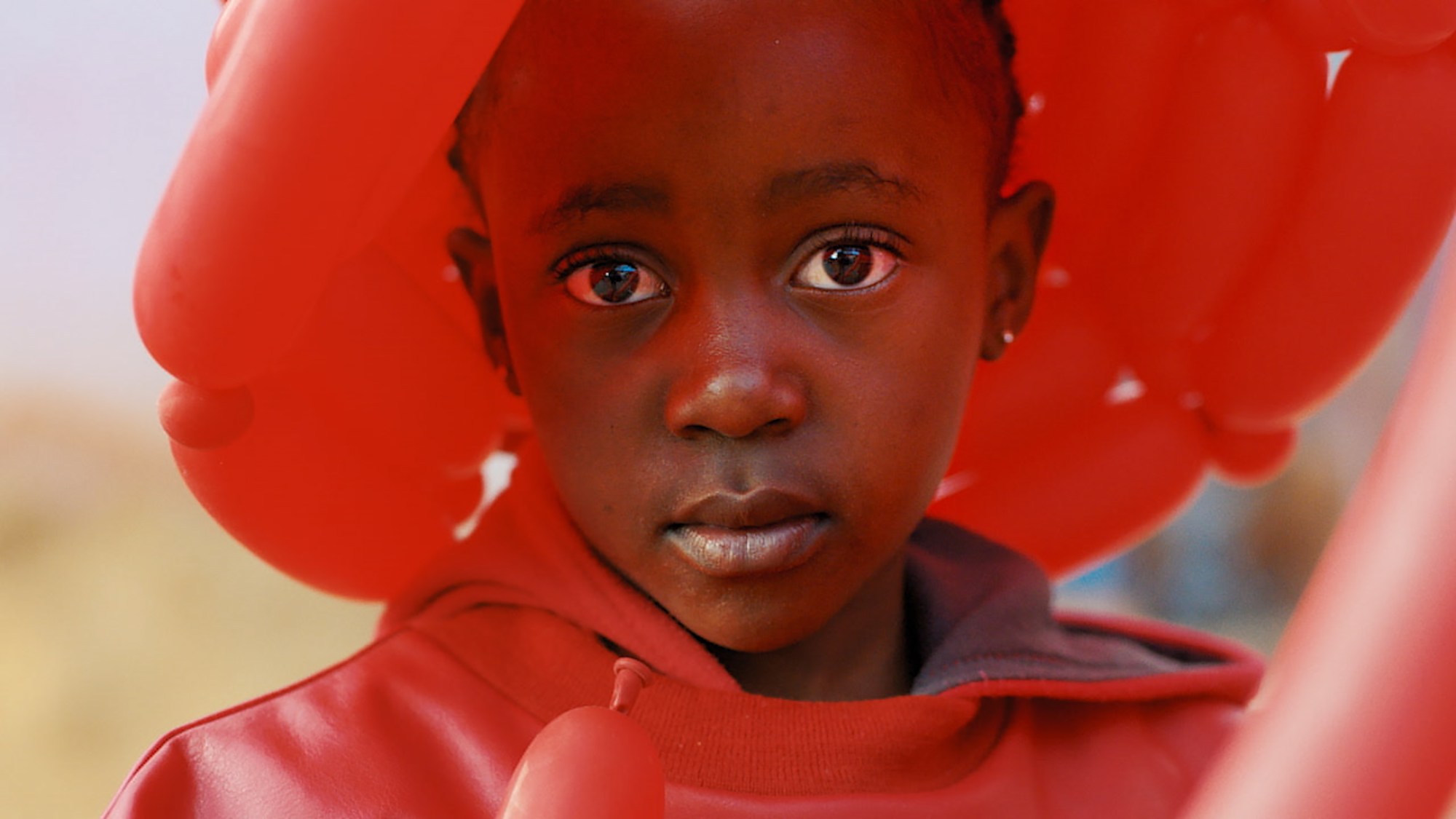
You were filming when South Africa is cold; but we’re so often led to believe it’s blazing hot all the time. Did you find yourself confronted with the reality of stereotypes embedded in your mind and think “Oh shit, I got this wrong!”
Two things really stuck out: firstly, just how oppressed women feel in that country, that their voices are constantly crushed, they have to fight to be heard. I didn’t know how dangerous it was for a lesbian woman, especially one who may not choose to present as femme. Faka mentioned that being a queer woman falling along the lines of masc is dangerous. “Corrective” rape means a lesbian will be raped and if she has a daughter in the same community they’ll rape the daughter to make sure she also isn’t a lesbian. Artist Lady Skollie talks on her radio show about sex and sexuality, things so taboo in South African society, and she sees this toxic attitude that women shouldn’t even feel responsible for other women. The poignant thing about her is she wasn’t afraid to talk about trauma.
And then there was the climate of colourism, because that has such a direct link to white supremacy. In America, to make a distinction between being lighter skinned and darker skinned, that comes directly from slavery and it’s something American black people have fought against for hundreds of years. So to see colourism in South African society go so far as vividly becoming two classes of people was a big shocker to me. People would say “Oh, you’d be South African if you lived here” and others said “No, you’d be coloured [light-skinned] if you lived here” – that was super uncomfortable to me.
You visited townships on your trip: what were those communities like, especially in response to queer photoshoots?
I went to Katlehong where Fela Gucci from Faka grew up and Soweto for a shoot with designer Rich Mnisi and that was cool. I didn’t know anything about township culture before, and I didn’t want to have this bourgeois outsider perspective, but I did think “are resources being distributed here as they should be?” There’s this huge wealth disparity meaning people don’t have these basic things in townships; home by home, some were pretty immaculate, and some were in disrepair. And the area that me and the crew stayed in was surrounded by houses with high fences and electrical wires. To be a black American and to come to a country that’s majority African and to see the wealth concentrated in a white minority is baffling. But that’s these systems of oppression, you know, this global fascism what we’re seeing again. This is what happened in history and this is what can happen if people aren’t aware or vigilant, or if society chooses to turn a blind eye to those who are disenfranchised and marginalised.
People say that a township has its own rules and you have to know people there, but when we were in Soweto with Rich, there was a feeling of everyone in the community knowing Rich and knowing he’s queer and going so above and beyond wanting to help in every single detail of the photoshoot, all these aunties and uncles wanting him to be a success.
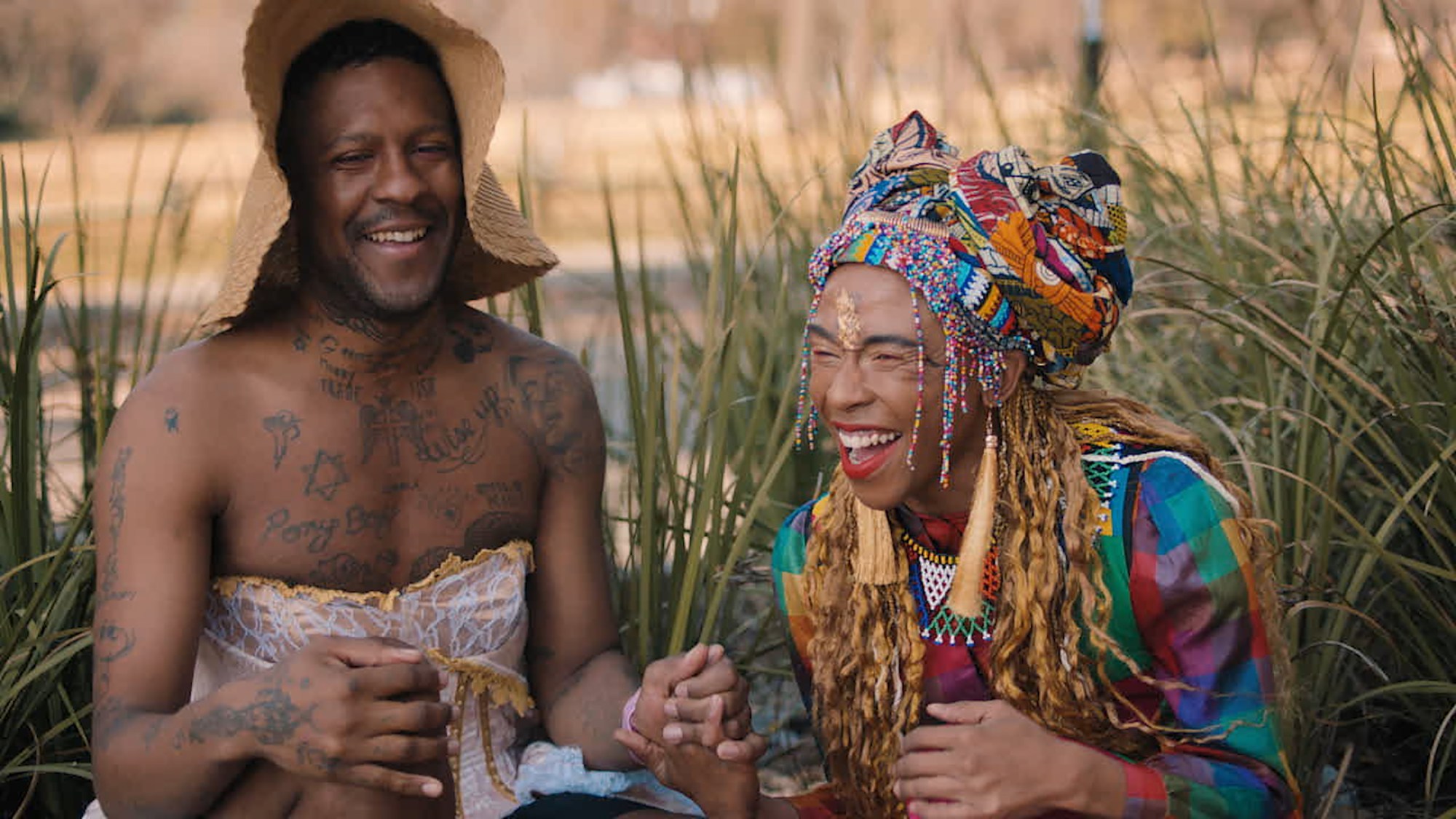
Is it pure luck that his home community is so accepting of him?
I think it’s got to do with your family understanding your work. Rich’s successes have been documented in magazines and papers and he’s won awards. That allows a mum or grandma or uncle to feel like “He’s making a name for himself, he’s succeeding.” And then there are people who do performance art or paint, art forms that are more transgressive or ambiguous. There is a dramatic difference between Rich, who is building a business, something the family and community can see, and Umlilo, a musician, which is always going to be to someone’s taste. And I don’t think anyone’s family anywhere, unless you have a very artsy family, will have some barometer of what makes someone a successful performance artist! And Umlilo doesn’t shield their natural way of navigating the world the way that’s most authentic to them, but when you’re presenting as femme in a super patriarchal society, that’s hard. That’s what the femme walk was for, to say “No, we are here, you can’t erase us”.
Did you ever feel intimidated on that walk?
When we were on [queer and anti-apartheid activist] Simon Ngoli corner, we had this moment of silence and the neighbourhood is rough around the edges, but more than me feeling unsafe, it was knowing that other people were nervous about what could happen.
At Cunty Power, the club night set up by Fela and Desire of FAKA, what was that space like? Who was in charge and who benefited?
Before I went we’d spoken about femme erasure in heteronormative cis gay spaces and so I thought Cunty Power would be a smaller night, but it was a fucking riot! The support that Faka have around them is really intense, and seeing people be able to let go also that felt really good. A lot of women were able to enjoy themselves without a feeling of the male gaze. I always think that’s really nice in a queer space where cis women feel like it is their space, because it is a shared space.
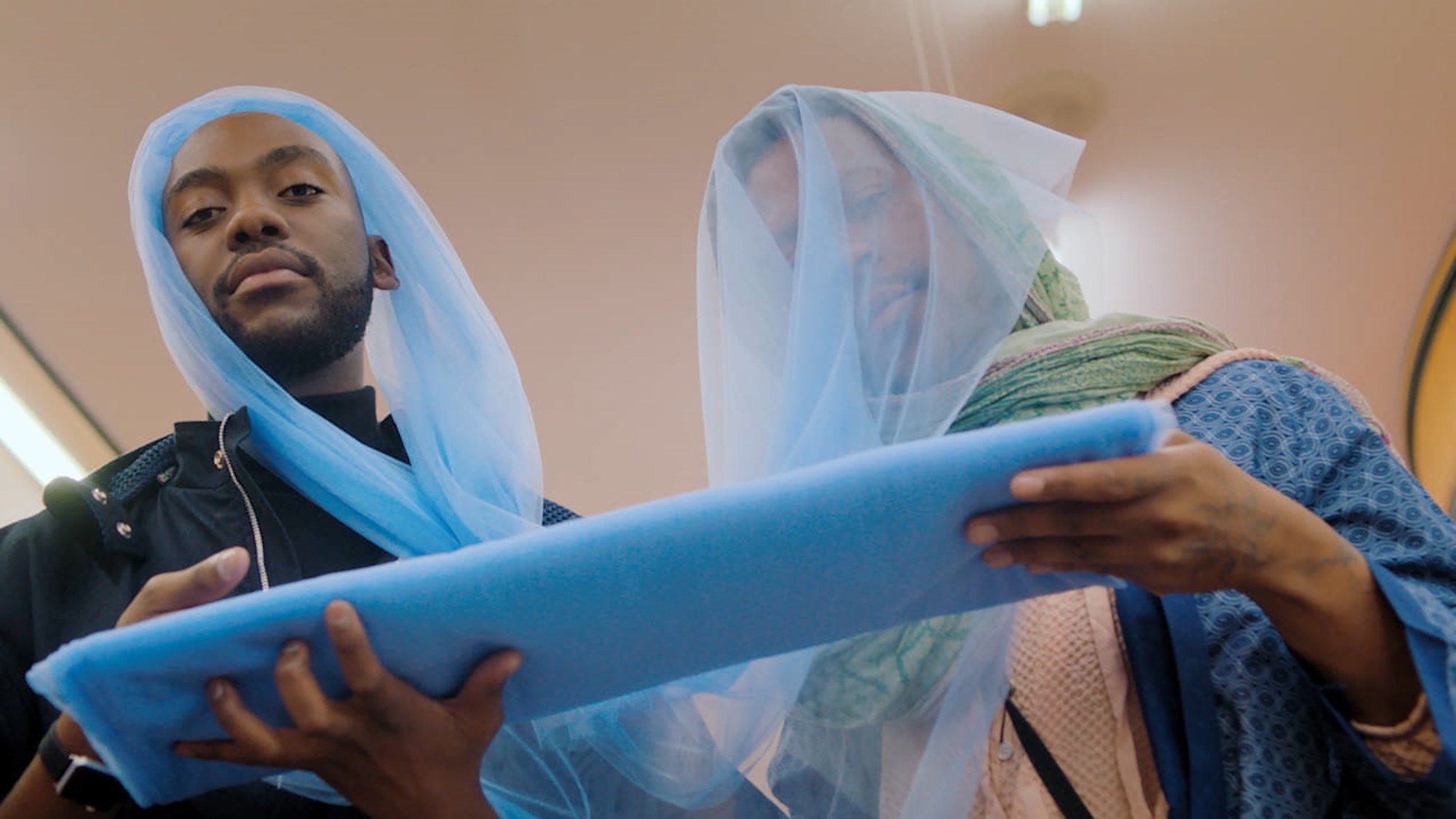
Also for trans people of colour to not be expected to perform for everyone else
To be the mascot. And that’s so not cute! I did notice the racial segregation though, it was a bit tense. I remember saying to Stephen [Isaac-Wilson, the film’s Story Producer] “God this is such a hardcore thing here, still in every way, this society they want to be here, they’re happy to be here, everyone’s cool with them being here, but at the same time I’m not seeing a certain jovialness” It’s an indoctrination of separateness.
How much do you think the internet enables queer youth to play out their true selves online then be confident to take that to the real life spaces they inhabit?
I think this international queer digital diaspora empowers people. I’m thinking about Luke van den Burg who is 18 years old and trans and goes about her life in Jo’burg being one of the only ever visibly trans people there. I think about how much lonelier she would feel if she didn’t have online references. The international queer digital diaspora empowers people and encourages people towards dynamic social change and behaviour in their own communities. So if I were Luke, I’d be like “Why can I NOT play with fashion? Or live as my gender expression and not feel like all of these eyes on me are judging me? There are people on the internet who understand what I’m going through, there are people I can look to”. We’ve also had key lighthouses for the international queer community: Laverne Cox speaking her truth, Janet Mock…when you have people even with smaller platforms engaging and talking about health care, sex, fashion… having that resource you can dial into makes a big difference.
Laverne Cox recently pointed out that gender binaries are a colonial imposition.
Yes! And everyone I spoke with who was black African had a reference to the church or being made to go to church, or said how much the Christian colonisation plays into this everyday idea of queer erasure.
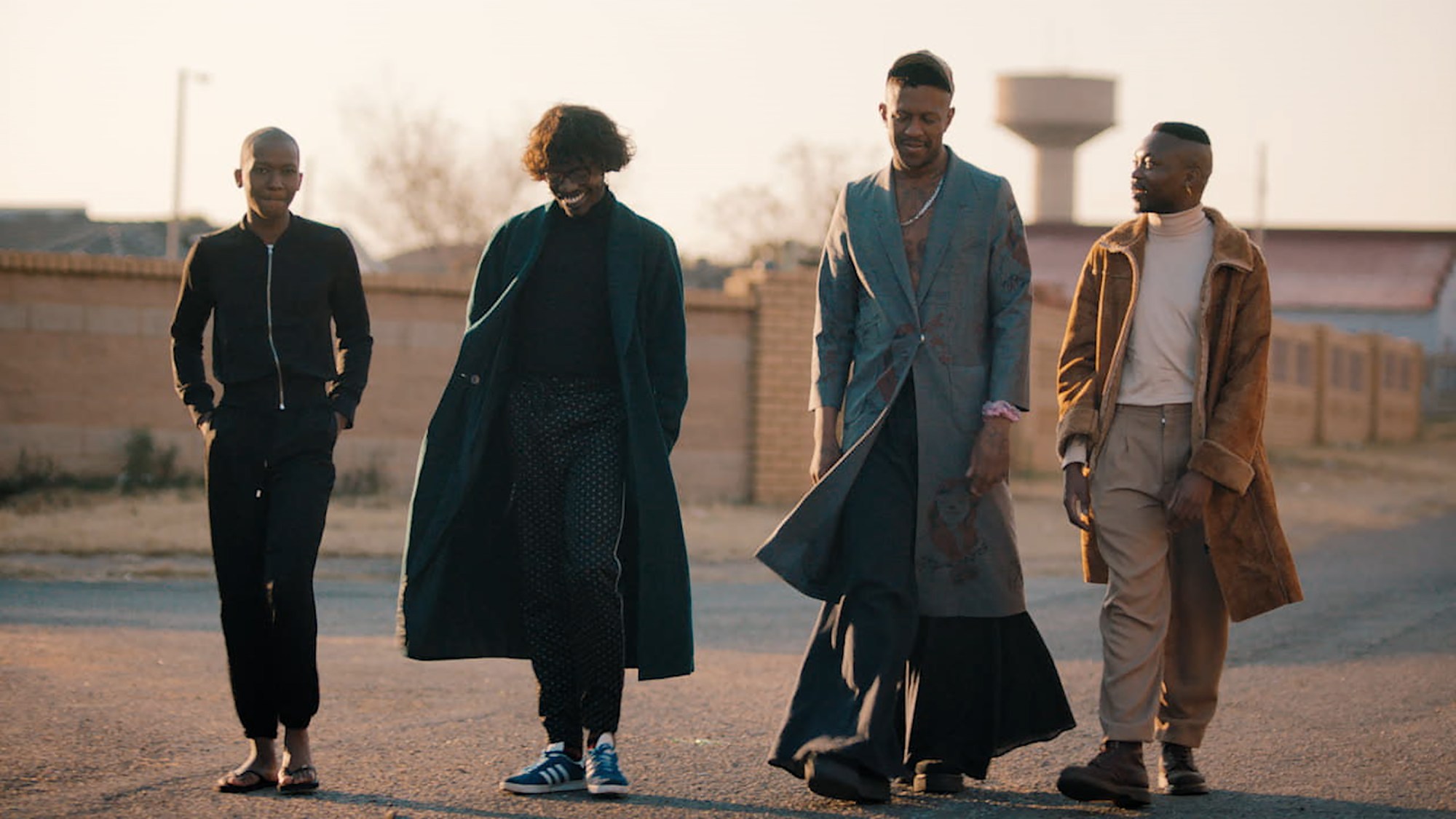
Do they not go to church anymore?
I didn’t get the vibe from anyone that they don’t go to church, no one explicitly said they stay away. Apart from Nkulsey I don’t think any of them had their family at a distance. I got the feeling everyone still had that as a foundation or a base in some respect.
Some documentaries would have made this revolve around their home family, but I loved that this focused on their youth culture
I myself had to realise that that is not a topical or superficial route to take. I think if anything, through the process I realised inside myself I had a trained super specific prescribed ideological way of tackling queer issues. I’d wonder “what is the meat of the situation”. But I think through the i-D lens of focusing on creatives, that’s way more interesting! I have not ever seen what we have made, not in Jo’burg, South Africa, 2017, following this Born Free generation. And we’re talking about what’s happening now, it’s not something that happened in 1980s New York now happening in a different country, it’s something authentic to Jo’burg.
And there’s no steel pan drums or tribal prints!
It’s 2017! Rich Mnisi talks about this idea that there’s a singular African narrative that has to be so tribal. But that literally plays along with fucking colonial stereotypes, and they’re not having it, none of the artists are having it!
That makes cultural appropriation even worse; people are appropriating something that isn’t even happening!
That’s something I did not see there: I didn’t hear conversations around call-out culture. People were more so wanting to engage and understand rather than point a finger and not have the full story, disengage and then aggressively call out to somehow usurp the situation, to be the successor or the one whose vantage point is the most correct right now.
I wonder if South Africans begin pointing fingers they’ll never be able to stop, there’s so much inequality there…
I’m a huge believer that it’s important to call out when people appropriate something, but at the same time there is something called genuinely enjoying an appreciation. Shit, you just like it, it’s ok to like it! You don’t have to run down a checklist of why you’re attracted to this print!
